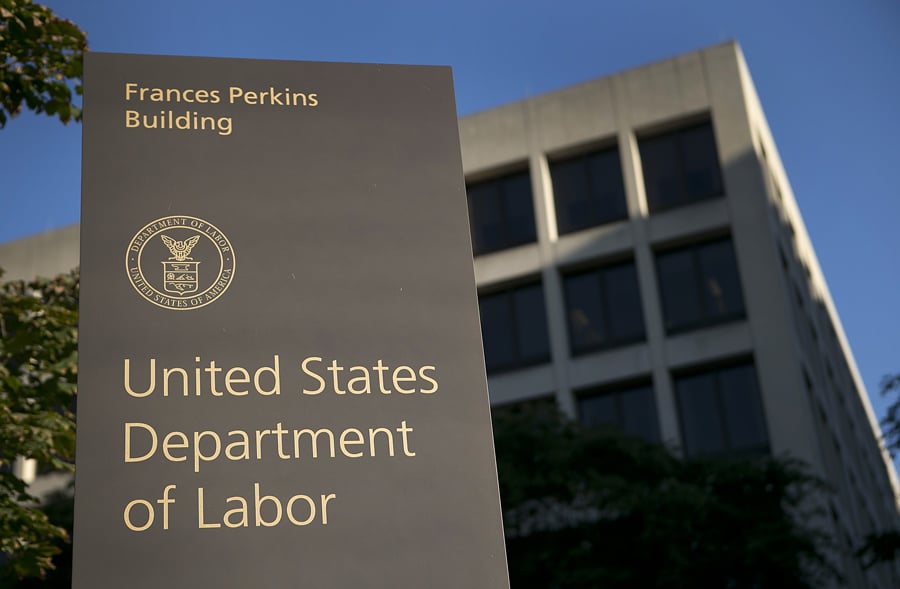

Retirement plan advisers should think twice before making cryptocurrency an investment option in a 401(k) plan, the DOL warned Thursday, vowing to investigate those who do.
The Department of Labor has noticed over the last few months that financial services firms are marketing cryptocurrency investments to 401(k) sponsors as investments for plan participants, the agency said in a compliance release.
It cautioned plan fiduciaries “to exercise extreme care” before adding crypto to the investment menu of a 401(k) plan.
“At this early stage in the history of cryptocurrencies, the Department has serious concerns about the prudence of a fiduciary's decision to expose a 401(k) plan's participants to direct investments in cryptocurrencies, or other products whose value is tied to cryptocurrencies,” the compliance release states. “These investments present significant risks and challenges to participants' retirement accounts, including significant risks of fraud, theft, and loss.”
The agency cited the speculative and volatile nature of crypto investments, as well as concerns about valuation, custody and record keeping.
The Employee Benefits Security Administration said it will launch an “investigative program” aimed at retirement plans that offer crypto investments. “The plan fiduciaries responsible for overseeing such investment options or allowing such investments through brokerage windows should expect to be questioned about how they can square their actions with their duties of prudence and loyalty in light of the risks.”
The DOL admonishment about crypto investing comes a day after President Biden issued an executive order for a governmentwide effort to establish policies for digital assets.
The agency is concerned that if cryptocurrency is available on a 401(k) menu, it will be perceived by plan participants as a safe investment instead of one that comes with substantial risks.
“What exactly is the message that a participant’s receiving as they see cryptocurrency on their core investment lineup,” Ali Khawar, DOL acting assistant secretary and EBSA head, said during a Thursday webinar sponsored by the American Academy of Actuaries. “Are they receiving messages about the security and appropriateness of those investment options that maybe aren’t really appropriate? And it wasn’t clear to us that the fiduciaries who are making these decisions are going into them with their eyes fully open.”

"The greed and deception of this Ponzi scheme has resulted in the same way they have throughout history," said Daniel Brubaker, U.S. Postal Inspection Service inspector in charge.

A survey reveals seven in 10 expect it to be a source of income, while most non-retired respondents worry about its continued sustainability.

AI suite and patent for AI-driven financial matchmaking arrive amid growing importance of marketing and tech among advisory firms.

The RIA's addition in Dallas, previously with Raymond James, comes just as the take-private deal between Corient's parent firm in Canada and Mubadala Capital comes to completion.

LPL's head of HNW planning says too many advisors are making a common mistake.
Stan Gregor, Chairman & CEO of Summit Financial Holdings, explores how RIAs can meet growing demand for family office-style services among mass affluent clients through tax-first planning, technology, and collaboration—positioning firms for long-term success
Chris Vizzi, Co-Founder & Partner of South Coast Investment Advisors, LLC, shares how 2025 estate tax changes—$13.99M per person—offer more than tax savings. Learn how to pass on purpose, values, and vision to unite generations and give wealth lasting meaning
